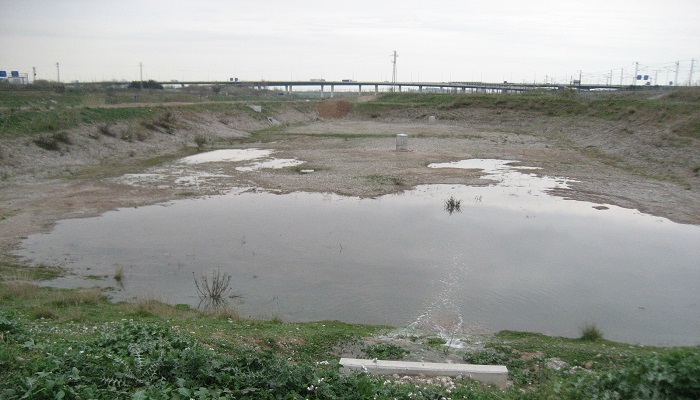
The EGU 2020 Henry Darcy Medal of the EGU Division on Hydrological Sciences was awarded to Xavier Sánchez-Vila in recognition of his innovative theoretical work and practical solutions regarding aquifer characterisation, subsurface solute transport processes and managed aquifer recharge. Given the online EGU 2020 GA, the medal lecture was however postponed to 2021. We then invited Xavi to write something to the HS community in a blog post, following these strange times…
Strange times, indeed! We have moved from business as usual to teaching on-line, learning how to work on a number of platforms such as Meet, Zoom, Teams, Webex, and, in general, working from home at very strange hours.
No face-to-face meetings for months and, the most amazing thing, not going to Vienna to say “hi” to friends and celebrate the 2020 Darcy Medal with beers (for everybody) and a soft drink (for me). I attended the on-line EGU General Assembly in the Sharing Geoscience Online format, and it was great. But, I really missed the getting-together part.
And then came the strange invitation to write a blog post, and having to ask my daughter: “What the hell is a blog?!” Well, let’s give it a try!
During these months, we have had one even more surprising thing, at least in my own perception: People have started realizing that only science can take us out of the present situation. Not the politicians (unless they follow the scientists), much less the military, certainly not the instagrammers. Science it is.
Understanding the problem in full, developing a conceptual model, and then acting accordingly, is the only way to solve a difficult problem. Now some journalists claim they understand models; well… at least they talk about experimental work, publications, high impact journals, citations. And PCR, cited by everybody, almost none even knowing what the acronym stands for. Of course, everybody is looking for THE model, not understanding the concept of uncertainty, or even thinking that risk is a Y/N variable, rather than a continuous one.
But we need to spread the word that tracing pandemics involves many more people than initially expected. The Darcy Medal is awarded to contributions in water resources research and water resources engineering and management. And suddenly we had the front pages of the newspapers: “Viruses can be traced in sewage water!” We knew that. Viruses are also present in treated wastewater. We expected it.
Let us recall the work of Henry Darcy. Some 170 years ago, he understood why water should be forced to pass a sand filter to become drinkable, removing bacteria. He did not know about viruses, discovered only in 1892, some 40 years later. But, just with this realization, he was the main agent to the increase in life expectation of the citizens of Dijon in the XIXth century.
So, if water is filtered by soil, viruses would be removed. We, hydrogeologists knew that. Now, we only need to convince somebody (instagrammers?) that the protection of our freshwater resources comes through proper understanding and management of facilities, from the sewage system to the wastewater treatment plant, to the aquifer recharge facility and to the production well. Is this the only way? No. Is this a safe way? Yes, indeed. I am sure Darcy would have been able to recognize, and even suggest this solution.
So, here we are, trying continuously to understand all the processes that occur in natural and managed aquifer recharge systems. Only with a proper understanding of all the physical, geological, geochemical and biological factors, as well as their interactions, we will be able to fully comprehend the fate of bacteria, viruses, antibiotic resistant genes, and organic compounds of emerging concern, in order to increase the availability and the safety of our freshwater resources under the huge uncertainty caused by climate change but also by future discoveries regarding… well, who knows what the future holds!
 Guest Author is Xavier Sánchez-Vila, professor at the Universitat Politècnica de Catalunya (UPC). Xavi’s research has focused on advancing the quantitative analysis of subsurface transport by developing new transport theories in porous media. He formulated effective flow and transport equations to include new terms stemming from the multiplicity of scales and processes, and he conducted seminal works on the quantification of the role of heterogeneity on a variety of reactive transport scenarios.
Guest Author is Xavier Sánchez-Vila, professor at the Universitat Politècnica de Catalunya (UPC). Xavi’s research has focused on advancing the quantitative analysis of subsurface transport by developing new transport theories in porous media. He formulated effective flow and transport equations to include new terms stemming from the multiplicity of scales and processes, and he conducted seminal works on the quantification of the role of heterogeneity on a variety of reactive transport scenarios.
Edited by Maria-Helena Ramos

Jesus Carrera
Excellent, indeed!
Enric Queralt
Congratulations Xavi,